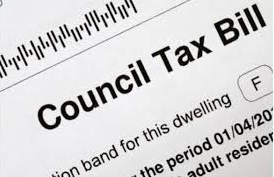
Average Annual Council Tax Bill to Rise by £106 as Local Authorities Face Funding Pressures
Residents in England are preparing for a rise in their council tax bills, with an average increase of 5 per cent this year. This means households will pay an additional £106, with the average bill for a Band D property climbing to £2,171. Local authorities are applying a social care precept of 2 per cent, and all 153 upper-tier councils will contribute to this increase.
The total council tax requirement in England has now reached £41.2 billion, marking an increase of £2.5 billion from 2023/24. Since 2020/21, the average annual council tax bill has risen by 20 per cent, with local authorities facing ongoing funding challenges despite a £600 million boost in funding.
To help residents better understand the increase, an interactive calculator has been provided to determine how much council tax will rise in specific areas starting from 1 April 2024. By entering a postcode, users can view the projected increase for their local authority, based on the band of their property.
What is My Council Tax Band?
Council tax bands in England are categorised into eight groups (A-H) based on the market value of a property in April 1991. Scotland uses a similar system, but the bands differ. In Wales, properties are divided into nine bands (A-I) and were last revalued in 2003. You can find your council tax band by checking your latest bill or using an online tool.
How Does My Council Tax Compare to Others?
In London, the average bill for a Band D property will rise to £1,422, marking a 5 per cent increase from 2023/24. In metropolitan districts outside London, the average annual rise will be slightly higher, at 5.4 per cent, bringing the average bill to £1,837. Meanwhile, unitary counties with no districts will see an increase of 5 per cent to £1,886. Other counties will experience an average increase of 5 per cent to £1,643, with additional charges for districts.
Councils Warn of Funding Squeeze
Local authorities have warned that they are facing tough decisions due to a prolonged funding squeeze, with councils already dealing with financial difficulties. Some councils in dire financial situations have been granted special permission to increase their council tax beyond the standard 4.99 per cent threshold.
Between 2010 and 2015, council tax increases were minimal, staying below 1 per cent annually. However, since 2018/19, the average increase has been set at 5 per cent. Currently, upper-tier councils cannot increase their rates above 4.99 per cent, including the social care precept, without seeking approval through a local referendum.
In 2024/25, parish precepts are expected to total £783 million, an increase of £75 million compared to the previous year.












